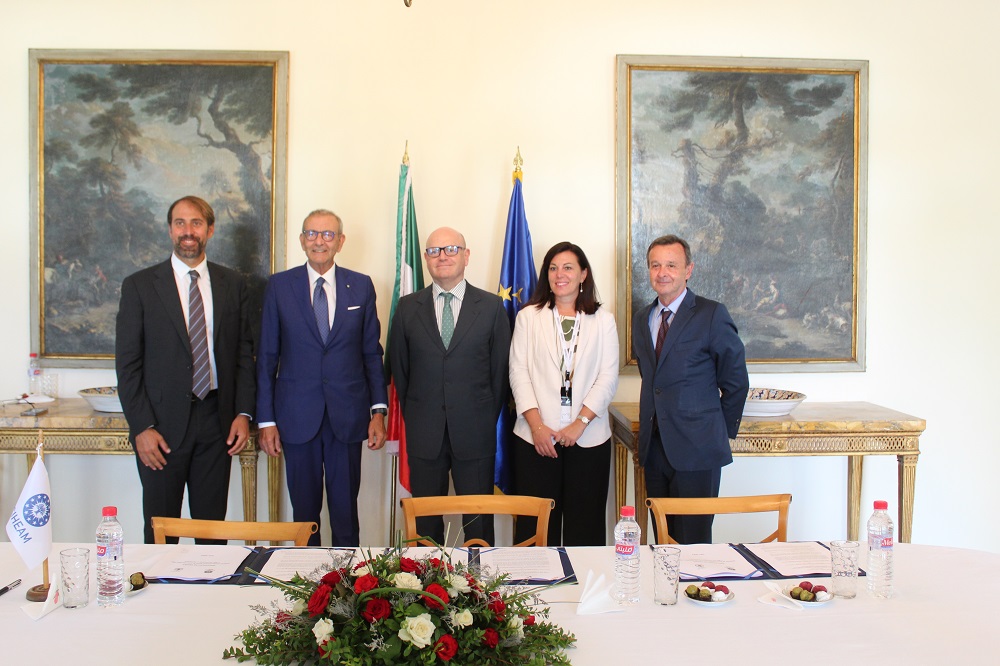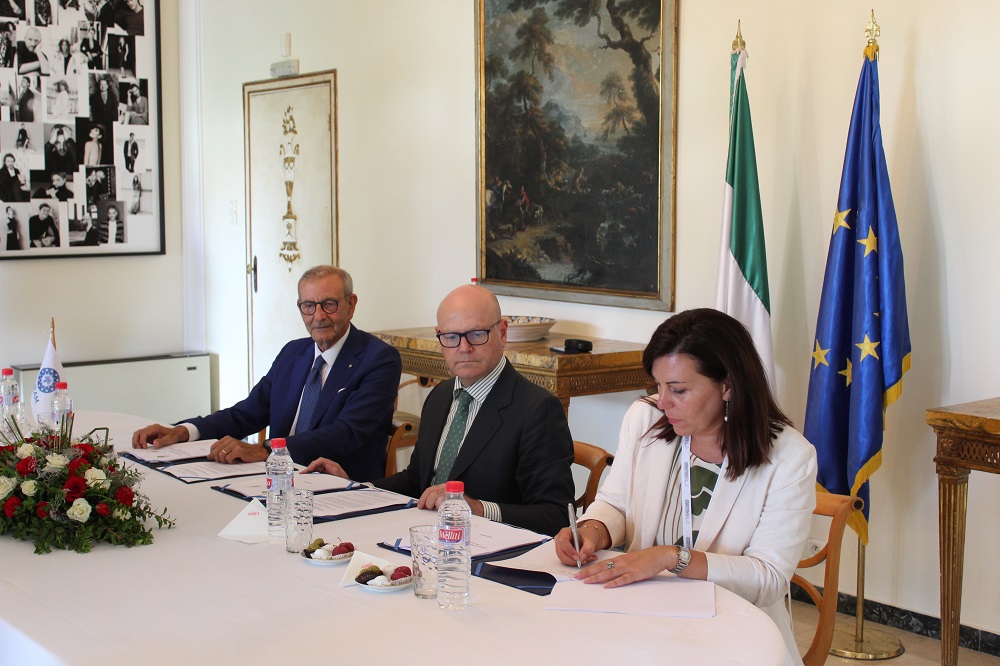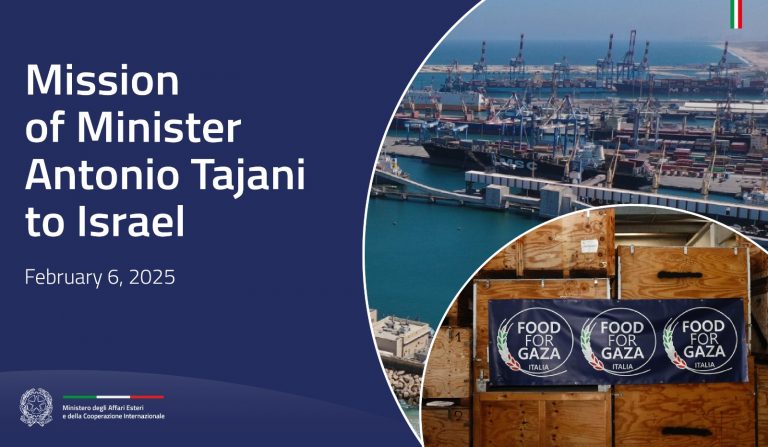A Cooperation Agreement for the creation of bio-districts in Tunisia was signed at the Residence of the Italian Ambassador in Tunis, Lorenzo Fanara, between the Farnesina, the Italian Development Cooperation Agency (AICS), and the International Centre for Advanced Mediterranean Agronomic Studies (CIHEAM Bari).
The Agreement, titled “Preliminary Actions for the building of bio-districts in Tunisia”, aims to promote local development projects and to support production, entrepreneurial and innovative activities, thus contributing to the development of micro, small and medium-sized enterprises and to leveraging natural genetic resources and local know-hows.
Ambassador Fanara said: “The signing of this Agreement testifies to Italy’s renewed commitment to support Tunisia in creating an inclusive, equitable, and sustainable development model. Preserving and leveraging natural resources in the perspective of finding a new balance between human communities and territories is one of our priorities in development cooperation matters.”
The project, which will be allocated an overall financing of a million euros, will have a duration of 18 months. Responding to a request for institutional, technical, and methodological assistance submitted by the Tunisian Ministry of Agriculture, Water Resources and Fisheries (MARHP), the project envisages the development of a pre-feasibility study for the establishment of “bio-districts” in five pilot areas scattered in different bio-climatic areas across the Country and more specifically at Hazoua (Tozeur), Majel Bel Abbes (Kasserine), Kesra (Siliana), El Haouaria-Nabeul, and Sejnane (Bizerte). These will make up the first bio-districts in the African continent; an approach that represents a quantum leap in the governance of rural development policies and strategies.






